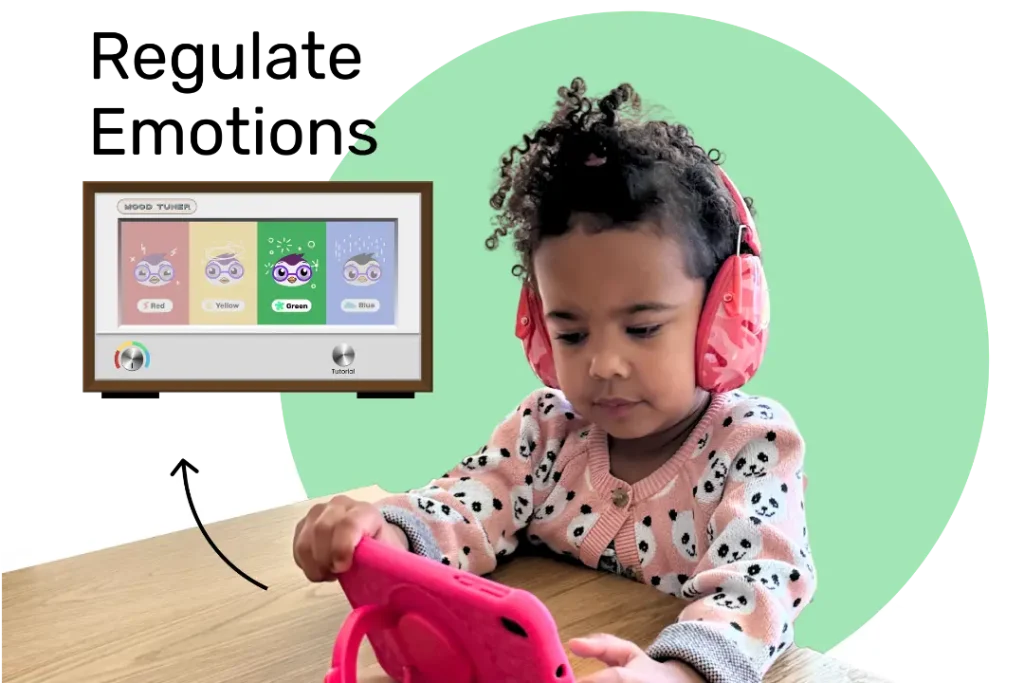When it comes to supporting your child’s growth and development, understanding the complexities of their brain can be a game-changer. One essential aspect is grasping the difference between serotonin and dopamine, two vital neurotransmitters with significant roles in your child’s overall well-being. In this comprehensive guide, we’ll discuss how these neurotransmitters function, their impact on your kid’s behavior, and practical strategies to help balance their levels for a happier, healthier life.

Table of Contents
What are Serotonin and Dopamine?
Serotonin is a neurotransmitter that’s largely responsible for feelings of happiness, well-being, and emotional stability. It plays a major role in the regulation of mood, appetite, sleep, and even memory. For neurodivergent kids, imbalances in serotonin levels can result in mood swings, anxiety, or depression.
Dopamine, in contrast, is a neurotransmitter that controls motivation, reward, and pleasure. It has a significant role in attention, learning, and decision-making. An imbalance in dopamine levels might lead to symptoms like impulsivity, hyperactivity, or difficulty concentrating, which are common in kids with ADHD.
Key Differences Between Serotonin and Dopamine
| Aspect | Serotonin | Dopamine |
|---|---|---|
| Function | Regulates mood, appetite, and sleep | Controls motivation, reward, and attention |
| Imbalances | Low levels may lead to anxiety or depression | Low levels may cause impulsivity or attention problems |
| Role in neurodivergent kids | Imbalances may be associated with mood disorders | Imbalances are often linked to ADHD |
How to Identify Imbalances in Serotonin and Dopamine Levels
Spotting imbalances in your child’s neurotransmitter levels starts with observing their behavior and recognizing patterns. Here are some signs that may indicate an imbalance:

Read more: What is Serotonin?
Serotonin Imbalance
- Mood swings or irritability
- Anxiety or excessive worrying
- Depression or sadness
- Difficulty sleeping or insomnia
- Changes in appetite
Dopamine Imbalance
- Impulsivity or risk-taking behaviors
- Difficulty concentrating or staying focused
- Lack of motivation or interest in activities
- Hyperactivity or restlessness
- Learning challenges
So, if you happen to notice any of these symptoms, it’s crucial to consult a healthcare professional for further evaluation and guidance. They can help determine the root cause and provide appropriate interventions.
Strategies to Support Serotonin and Dopamine Balance in Kids
While professional guidance is vital for managing neurotransmitter imbalances, parents can take practical steps to support their neurodivergent kids. So here are some strategies to consider:
Diet and Nutrition
Ensure your child’s diet includes foods rich in nutrients that support serotonin and dopamine production. For serotonin, incorporate foods containing tryptophan, like turkey, chicken, eggs, nuts, and seeds. For dopamine, focus on foods high in tyrosine, such as lean meats, fish, dairy, and whole grains.
Also, consider adding foods rich in vitamins and minerals that support overall brain health, like fruits, vegetables, and whole grains. All in all, a balanced diet can have a significant impact on your child’s neurotransmitter levels and overall well-being.

Physical Activity
Regular exercise has been proven to increase both serotonin and dopamine levels. Encourage your child to engage in activities they enjoy, such as swimming, dancing, or playing sports. This not only boosts their neurotransmitter levels but also improves mood and focus.
Keep in mind that the type of activity is less important than consistency. Aim for a minimum of 30 minutes of exercise most days of the week, and remember to make it fun and engaging for your child
Sleep
A consistent sleep routine can help regulate serotonin and dopamine levels in your child’s brain. Ensure they have a comfortable sleep environment and follow a predictable bedtime routine to support healthy sleep habits.
Limit screen time before bed, maintain a consistent bedtime, and establish a calming pre-sleep routine, like reading a book or taking a warm bath. These strategies can significantly improve your child’s sleep quality and contribute to neurotransmitter balance.
Stress Management
Stress can take a toll on serotonin and dopamine levels. Teaching your child stress-reducing techniques can help them cope with everyday challenges more effectively. Try deep breathing exercises, mindfulness, or yoga as tools to manage stress.
Remember, it’s essential to tailor stress management techniques to your child’s unique needs and preferences. Experiment with different approaches to find what works best for them.
Professional Support
Partnering with your child’s healthcare provider is crucial to develop a tailored plan for managing neurotransmitter imbalances. This may include medication, therapy, or specialized interventions that cater to your child’s unique needs.
Regular check-ins with healthcare professionals can help monitor your child’s progress and make necessary adjustments to their treatment plan, ensuring the best possible outcome for their well-being.
Goally | Kid’s Tablet for Building Emotional Regulation Skills
Is your child struggling with understanding and managing their emotions? Goally teaches emotional regulation skills in a fun and interactive way!

The Mood Tuner app encourages kids to look inwards and identify their feelings, helping them understand what’s going on inside. Once they’ve recognized their emotions, they can choose from a variety of exercises designed to help them self-regulate and find their balance.
Wrapping Up: The Difference Between Serotonin and Dopamine Matters
Understanding the difference between serotonin and dopamine in kids is vital for parents seeking to support their neurodivergent children. By recognizing the signs of imbalances and implementing strategies to promote balance, you can help create a more positive, fulfilling life for your child. Remember, professional guidance is essential, and working together as a team will ensure the best possible outcome for your kid’s well-being.
This post was originally published on 05/14/2023. It was updated on 07/11/2023.

Goally
We help parents teach their kids life skills, like doing bedtime and morning independently. Backed by science, we incorporate evidence-based practices and expert-informed designs in all of our apps and content.





